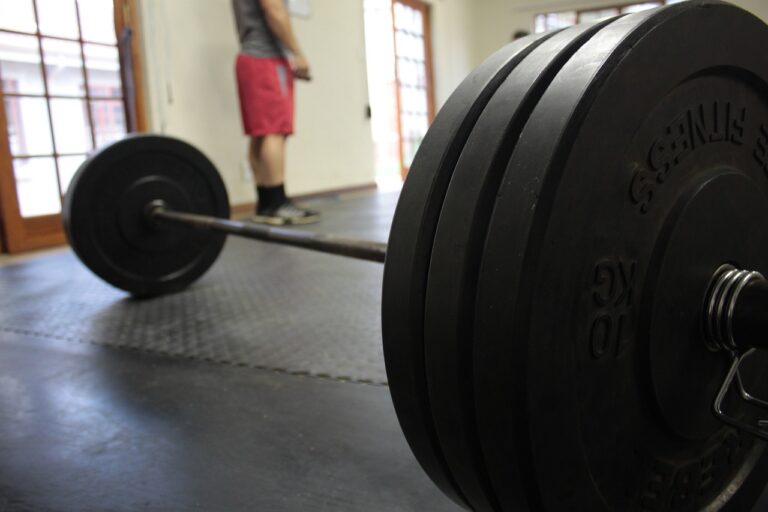Immune Health and Performance in Youth Cricket: Allpannel, Lotus bhai, Allpaanel com mahadev book login
allpannel, lotus bhai, allpaanel com mahadev book login: Growing up playing cricket can be a rewarding experience for many young athletes. Not only does it provide physical and mental benefits, but it also helps to foster a sense of teamwork and sportsmanship. However, one crucial aspect that is often overlooked is the impact of immune health on performance in youth cricket.
Immune health plays a vital role in not only keeping young athletes healthy and feeling their best but also in their overall performance on the field. A strong immune system can help to prevent illnesses and infections, allowing young cricketers to stay on top of their game throughout the season.
So, how exactly does immune health impact performance in youth cricket? Let’s delve into the importance of immune health in young athletes and how it can be optimized to ensure peak performance.
Nutrition and Immune Health
Proper nutrition is key to maintaining a healthy immune system. A diet rich in fruits, vegetables, whole grains, lean proteins, and healthy fats can provide the essential vitamins and nutrients needed to support immune function. Young cricketers should aim to eat a balanced diet that includes a variety of foods to ensure they are getting all the necessary nutrients to support their immune health.
Hydration is also crucial for immune health and overall performance on the field. Dehydration can weaken the immune system, making young athletes more susceptible to illness. Encouraging young cricketers to drink plenty of water throughout the day and during practices and games is essential to maintaining immune health.
Rest and Recovery
Getting an adequate amount of rest is essential for immune health. Young athletes need to prioritize sleep to allow their bodies to rest and recover from the physical demands of training and playing cricket. Lack of sleep can weaken the immune system, making young cricketers more vulnerable to illness.
In addition to sleep, rest and recovery days are also important for immune health. Overtraining can put stress on the body and weaken the immune system, making young athletes more prone to illness. Encouraging young cricketers to listen to their bodies and take rest days when needed can help to prevent burnout and keep their immune systems strong.
Supplements and Immune Boosters
While a balanced diet should provide most of the vitamins and nutrients needed to support immune health, sometimes young athletes may benefit from supplements or immune boosters. Vitamin C, vitamin D, zinc, and probiotics are all known to support immune function and may be beneficial for young cricketers, especially during cold and flu season.
However, it’s essential to consult with a healthcare provider before starting any new supplements to ensure they are safe and appropriate for young athletes. Over-supplementation can be harmful and may not always be necessary if a balanced diet is being followed.
Stress Management
Stress can have a significant impact on immune health. Young athletes may experience stress from the pressures of competition, school, or personal issues, all of which can weaken the immune system. Teaching young cricketers stress management techniques such as deep breathing, mindfulness, or yoga can help them to better cope with stress and support their immune health.
Incorporating Immune-Boosting Activities
In addition to nutrition, rest, supplements, and stress management, there are other activities young cricketers can incorporate into their routine to support immune health. Regular exercise, whether it be cricket practice, strength training, or other sports, can help to boost the immune system and keep young athletes healthy.
Spending time outdoors in the fresh air and sunshine can also help to support immune health. Vitamin D from sunlight is essential for immune function, so encouraging young cricketers to spend time outside can benefit their overall health.
FAQs:
Q: How can I tell if my immune system is weak?
A: Signs of a weakened immune system can include frequent illnesses, slow recovery from illness, fatigue, and overall feeling run down. If you suspect your immune system is weak, it’s essential to consult with a healthcare provider for further evaluation.
Q: Can I boost my immune system quickly before a big game?
A: While there is no quick fix to boost your immune system overnight, getting adequate rest, staying hydrated, eating a balanced diet, and managing stress can help to support your immune health leading up to a big game.
Q: Are there specific foods that can help to boost immune health?
A: Foods rich in vitamin C, vitamin D, zinc, and probiotics are known to support immune function. Incorporating foods such as citrus fruits, leafy greens, yogurt, and nuts and seeds into your diet can help to support your immune system.
In conclusion, immune health plays a crucial role in the performance of young cricketers. By prioritizing nutrition, rest, supplements, stress management, and immune-boosting activities, young athletes can support their immune systems and stay healthy on and off the field. By taking care of their immune health, young cricketers can optimize their performance and enjoy the game to the fullest.







